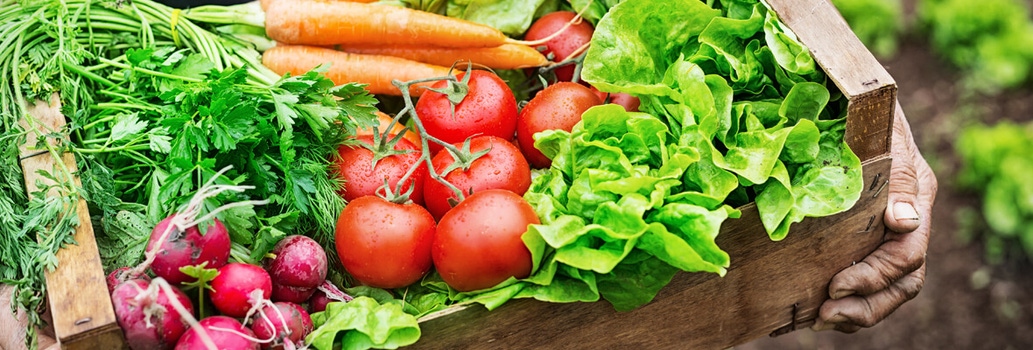
Eating seasonally- why it’s good for the planet, your wallet and your waistline
The concept of seasonal eating is not a new one. Before the arrival of supermarkets, humans grew their own foods and used what was available.
These days, we’re spoilt for choice with an abundance of fruit and veggies grown locally and available within days of picking at our local grocers and supermarkets. In fact, our growers work hard to extend the seasons of our favourite fruit and veg using greenhouses and growing the same crop in different climatic regions to stagger harvest times.
However, it still makes plenty of sense to shop by what’s in season. Here are 5 reasons why:
Bang for your buck
Eating food that’s in-season means it is generally in peak supply, so it’s not only fresh and tasty but it’s likely to be much cheaper. Look out for supermarket specials or hit your local farmers markets and talk to the growers about what’s in season. Growers markets often have great Facebook pages with weekly seasonal tips too. (Also see our seasonal eating guide.)
Power to the planet
Ever heard of a “locavore”? It simply means you choose food that’s grown locally. Locally grown, seasonal food has the biggest benefit for the planet, as it takes less resources to transport and store your food. Did you know transporting food by air generates 177 times more greenhouse gases than shipping it?
Support the farmers
Whether you make it to your local farmer’s market or you pop seasonal produce in your shopping basket, you’re supporting Australian growers. In supermarkets, most fresh fruit and veggies will have a sticker or a sign telling you where it is grown and when it comes to packaged foods look for “Made in Australia” labelling.
Living leaner & longer
If you’re buying seasonal produce, chances are you’ll be filling your plate with more fruit and veggies – win:win. For several decades, research has consistently shown a well-balanced vegetarian diet (made up of veggies, fruit, nuts, legumes and whole grains) can help reduce your risk of major lifestyle diseases, help you live longer, and also help with weight management.
More nutrients
As well as vitamins and minerals, fruit and veggies contain powerful phytonutrients. These are the natural compounds that give plant foods their bright colours and unique flavours. There are more than 5000 phytonutrients and scientists are just beginning to understand their many health benefits. Eating seasonally will naturally help you mix up the variety of fruit and veggies you eat, which is one of the best ways to benefit from all the phytonutrients they provide.
So, what’s in season for autumn?
Autumn brings with it a multitude of delicious fruits and veggies. Family favourites like apples, pears and mandarins.
As for veggies, root vegetables such as sweet potato/kumara and parsnips are in season, as well as broccoli, cabbage, cauliflower and Brussel sprouts. These veggies make the perfect bases for soups, stews and curries, and can be the star of a crowd-pleasing roast dinner.
If you’re not sure what’s seasonally available in your area right now, see our Seasonal Food Guide to make a difference environmentally and economically!

The latest nutrition advice, plus health and wellness tips delivered to your inbox monthly

